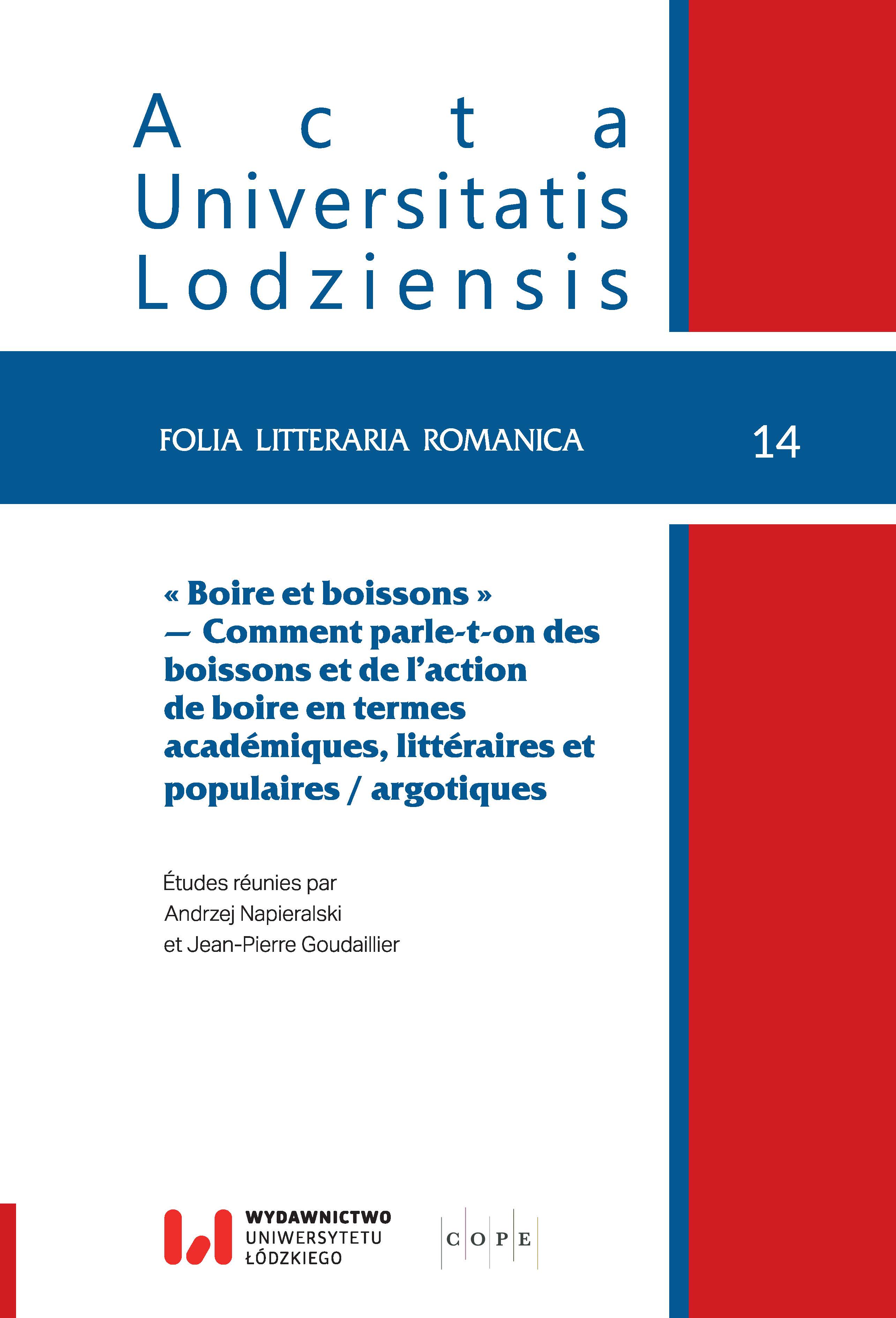He Who Drinks Does Not Think of Evil: How to Say ‘to Drink’ and ‘Beverage’ in the Bulgarian Slang?
DOI:
https://doi.org/10.18778/1505-9065.14.05Keywords:
slang, standard language, colloquial speech, regional dialects, urbanolects, foreign languagesAbstract
The last decades of the 19th century marked the beginning of scientific research devoted to Bulgarian sociolects, especially to the secret slangs of craftsmen: masons, shoemakers, street musicians, beggars, and petty thieves. Gradually, attention was being directed to corporate slangs of schoolchildren and university students of large cities, and it is these particular sociolects that remain at the centre of many studies to the present day. However, slang vocabulary related to drinks and drinking has never been studied in Bulgaria. The proposed article – based on a study of numerous literary and journalistic works, Internet forums, and daily discourse – examines the vocabulary of Bulgarian youth slang for drinks and drinking, its relationship to the standard language and colloquial speech, as well as the differences and similarities between them. The analysed vocabulary is classified according to its affiliation to a specific variation of the national language: standard, colloquial speech, and social dialects. Further, each group is organised according to the lexico-morphological characteristics of the constitutive elements: verbs, nouns or adjectives, as well as verbal or noun expressions.
Downloads
References
Argirov, Stoyan, « Kǎm bǎlgarskite taini ezitsi » [À propos des langues secrètes bulgares], in Spisanie na bǎlgarskoto knižovno družestvo [Revue périodique de la Société littéraire bulgare], Sofia, 1901, p. 2-41
Google Scholar
Armianov, Gueorgui, Bălgarskiyat žargon – leksiko-semantičen i leksikografski aspekt [L’argot bulgare – l’aspect lexico–sémantique et lexicographique], Sofia, Ed. Université de Sofia « St. Kliment Ohridski », 1995
Google Scholar
Koteva, Margarita, Nazvaniya, svărzani s hranite i tyahnoto prigotvyane [Termes liés aux nourritures et à leur préparation], Thèse de doctorat, Académie bulgare des sciences, Sofia, 2015
Google Scholar
Sledd, James, “On not teaching English usage”, English Journal, vol. 54, no 8, National Council of Teachers of English, 1965, p. 698-703
Google Scholar
DOI: https://doi.org/10.2307/811000
Stojkov, Stojko, « Sofiïskiyat učeničeski govor » [L’argot des étudiants de Sofia], in Annuaire de l’Université de Sofia, Faculté historico-philologique, t. XLII, 1946, p. 1-73
Google Scholar
Šišmanov, Ivan, « Beležki kǎm bǎlgarskite taïni ezitsi i poslovečki govori » [Notes à propos des langues secrètes bulgares et des langages proverbiaux], in Sbornik za narodni umotvorenija – SbNU [Recueil de matériaux traditionnels], Sofia, Vol. 12, 1895, p. 15-50
Google Scholar
Voïnikov, Petko, « Tarikatsko-bâlgarski rečnik » [Dictionnaire argot-bulgare], Rodna reč, no 2, Sofia, 1930, p. 65-76
Google Scholar
Downloads
Published
How to Cite
Issue
Section
License

This work is licensed under a Creative Commons Attribution-NonCommercial-NoDerivatives 4.0 International License.













